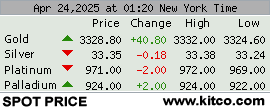 (CN) – A San Francisco jury on Friday found that Monsanto must pay $250 million in punitive damages to a school groundskeeper because its Roundup weed killer caused his fatal lymphoma, the first such verdict against the agrochemical giant.
(CN) – A San Francisco jury on Friday found that Monsanto must pay $250 million in punitive damages to a school groundskeeper because its Roundup weed killer caused his fatal lymphoma, the first such verdict against the agrochemical giant.
The 12-member unanimous jury awarded plaintiff Dewayne Johnson $39.2 million compensatory damages, finding Monsanto chose not to warn him that Roundup can cause cancer.
In a statement issued after the verdict, Monsanto reiterated the safety of Roundup and denied it caused Johnson’s cancer.
“We are sympathetic to Mr. Johnson and his family. Today’s decision does not change the fact that more than 800 scientific studies and reviews – and conclusions by the U.S. Environmental Protection Agency, the U.S. National Institutes of Health and regulatory authorities around the world – support the fact that glyphosate does not cause cancer, and did not cause Mr. Johnson’s cancer. We will appeal this decision and continue to vigorously defend this product, which has a 40-year history of safe use and continues to be a vital, effective, and safe tool for farmers and others.”
Johnson, 46, sued Monsanto in 2016 after he was diagnosed with mycosis fungoides, a skin-based non-Hodgkin lymphoma that caused cancerous lesions to form over most of his body.
He said he developed symptoms after he was twice drenched in Roundup and regularly had it drift into his face while spraying schoolyards for his job with the school district in Benicia, a suburb of San Francisco.
His lawyers argued during the four-week trial that Monsanto has known for decades that Roundup is carcinogenic. They told jurors Monsanto didn’t include a cancer warning label or instruct users to wear protective clothing for fear of disrupting its $6.6 billion global business.
Since Roundup’s active ingredient glyphosate was declared a probable human carcinogen in 2015 by the World Health Organization’s International Agency for Research on Cancer, hundreds of lawsuits have been filed in the United states claiming Roundup causes non-Hodgkin lymphoma.
Johnson’s case is the first to go to trial because he has less than two years to live. Friday’s verdict could presage future ones, 400 of which were recently cleared for trial in San Francisco federal court.
Monsanto insists Roundup is safe. At trial, it argued the herbicide could not have caused Johnson’s lymphoma because cancer takes at least 2.5 years to develop, and Johnson used Roundup for just one summer spraying season before developing symptoms the following fall.
The company instead suggested Johnson’s illness was inherited. Johnson contemporaneously developed squamous cell carcinoma, a skin cancer unrelated to mycosis fungoides and rarely found in African-Americans.
That, along with a greater prevalence of mycosis fungoides in the African-American population, prompted Monsanto to argue Johnson would have gotten cancer whether or not he used Roundup.
In a statement, Johnson’s attorney Brent Wisner of the firm Baum Hedlund Aristei Goldman said Monsanto’s secrets came out at last.
“We were finally able to show the jury the secret, internal Monsanto documents proving that Monsanto has known for decades that glyphosate and specifically Roundup could cause cancer. Despite the Environmental Protection Agency’s failure to require labeling, we are proud that an independent jury followed the evidence and used its voice to send a message to Monsanto that its years of deception regarding Roundup is over and that they should put consumer safety first over profits,” Wisner said.
The science on a link between glyphosate and non-Hodgkin lymphoma remains murky. Some researchers say studies finding a link suffer from measurement errors and design flaws, overestimating the cancer risk. Others criticize studies finding no link for using statistical methods they say underestimate risk, and have accused regulators of ignoring guidelines for the evaluation of herbicides.
Monsanto says repeat studies and reviews by regulators around the world, including the U.S. Environmental Protection Agency, found no evidence of a link and therefore no cancer risk warning is necessary.
Glyphosate is the most widely used agrichemical in history. Monsanto introduced it in 1974, and its use exploded in 1996 after the company began selling “Roundup-ready” seeds engineered to resist the herbicide. More than 2.6 billion pounds of the chemical were spread on U.S. farmlands and yards between 1992 and 2012, according to the U.S. Geological Survey.
In June, German pharmaceutical giant Bayer completed its $63 billion acquisition of Monsanto after approval by U.S. and European regulators. Bayer told Reuters that same month it plans to retire the Monsanto name.
Like this:
Like Loading...
Related




 Tweet This
Tweet This Facebook
Facebook Digg This
Digg This Bookmark
Bookmark Stumble
Stumble RSS
RSS





























REAL NAMES ONLY: All posters must use their real individual or business name. This applies equally to Twitter account holders who use a nickname.
1 Comment
WHY AM I NOT PERMITTED TO SEE WHAT 12 JURORS SAID , THOSE WORDS ARE AVAILABLE TO PUBLIC , BUT ONE CLERK AT SAN FRANCISCO SUPERIOR COURT OF JUDGE SUZANNE BOLANOS ADVISED ME BY PHONE THAT THOSE 57 LAW FIRMS MUST APPROVE MY RECIEVING THAT DOCUMENT ? I AM WAITING . HOW MUCH MORE STUPID CAN OUR COURTS BECOME ?